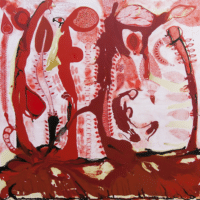-
Venezuela: Despite U.S. sanctions Maduro delivers house number 2.8 million
As a part of Great Housing Mission Venezuela, the national program guarantees citizens’ access to adequate housing.
-
Wallerstein without anesthetics
The death of Immanuel Wallerstein deprives us of an exceptional mind and an astute critic of capitalist society. This is a doubly lamentable loss at a moment as critical as the present, when the international system suffers under the combined pressures of the tensions provoked by the decline of U.S. imperialism and of the systemic crisis of capitalism.
-
New season of Amazon’s Jack Ryan focused on Venezuela denounced as ‘over-the-top and ridiculous’ U.S. propaganda
The upcoming season of Amazon’s Jack Ryan could have been scripted by John Bolton.
-
Brazil: The dangers of being young and Black
The latest statistics released by the UN show that some 23,000 young Blacks die violently every year in Brazil, equivalent to one every 23 minutes.
-
Evo Morales, providing leadership in times of adversity
While other South American leaders delayed operations to fight fires for days as flames spread across the Amazon, Bolivian President Evo Morales Ayma personally led efforts to confront the tragedy
-
We will see roots reaching out for each other
Last week, Agence France-Presse got its hands on a draft UN report called Special Report on the Ocean and Cyrosphere in a Changing Climate. This 900-page document is study of the oceans for the Intergovernmental Panel on Climate Change (IPCC), the UN body which won the Nobel Prize for Peace in 2007.
-
“Down with the Rebels Against the Bill of Sale!”: Guy Endore’s Radical Reimagining of Haiti and Revolution
The American occupation of Haiti lasted from 1915–34. The U.S. subjected Haitians to the hated forced labor system of the corvée, seized control over Haitian finance, and rewrote the Haitian Constitution at gunpoint, enabling foreign companies to acquire land in the country. The distorting and oppressive impacts of the U.S. occupation have been felt in Haitian society ever since.
-
Dissent is being criminalized right under our noses
I read with interest a recent press release of Rep. Michael McCaul—the Republican incumbent in the Texas 10th Congressional District and my opponent in the 2018 election—in which he announced a new bill to respond to domestic terrorism.
-
Understanding the fires in South America
Extractivist governments are stoking destruction in the Amazon and beyond. International alliances and Indigenous technologies can help protect the biome and support its 30 million inhabitants.
-
RIP Immanuel Wallerstein — “This is the end; this is the beginning”
A towering intellectual, pathbreaking thinker, and preeminent sociologist Immanuel Wallerstein passed away. He lived a deep commitment to scholarship, justice and change.
-
Excessive state surveillance is now ‘undermining British democracy’
Kevin Blowe is the coordinator of the Network for Police Monitoring (Netpol) from 2014 when it began focusing on the policing of opposition to fracking across the country. He regularly contributes to the Organization for Security and Co-operation in Europe’s work on protecting rights to freedom of assembly and spent 25 years as a campaigner with the Newham Monitoring Project in East London.
-
Mixed joy and great sorrow
In Saxon and Brandenburg, the leading parties held their lead and headed off the threat by the AfD. But in both states they were painfully weakened.
-
Film ‘Official Secrets’ is the tip of a mammoth iceberg
A new film depicting the whistleblower Katherine Gun, who tried to stop the Iraq invasion, is largely accurate, but the story is not over, says Sam Husseini.
-
Are German greens on the left?
The three states in Eastern Germany now facing elections (two of them on Sunday) will be forced to decide on coalitions; no party will be strong enough to rule alone, most likely not even in two-party tandems.
-
Corinna Lotz – Finding Ilyenkov: How a Soviet Philosopher Who Stood Up for Dialectics Continues to Inspire
Corinna Lotz’ Finding Ilyenkov can be read in a few hours, but for those readers taken with its ideas and appeal to the relevance of Ilyenkov’s life and theory, this book provides a salient and fecund starting point for any variety of in-depth engagements relating to Ilyenkov, dialectical materialism and creative Soviet Marxism.
-
Announcing the 2019 Food Sovereignty prize honorees
The U.S. Food Sovereignty Alliance is very excited to announce the winners of the 2019 Food Sovereignty Prize. Urban Tilth (Richmond, CA) is the domestic honoree, and Plan Pueblo a Pueblo (Plan People to People; Venezuela) is the international honoree.
-
A month ahead of Global Climate Strike, thousands pledge to attend rallies across planet to ‘turn up the political heat’ and demand action
“Time is running out. This decade is our last chance to stop the destruction of our people and our planet… This is why we strike.”
-
Antifa: the anti-fascist handbook – book review
The long history of anti-fascist mobilisation, outlined in Bray’s Antifa, underlines the importance of broad alliances for mass mobilisations, argues Thomas Gibbs.
-
Prabir Purkayastha on How Big Data’s Threat to Elections and Democracy Is Quickly Becoming a Global Problem
The cost of the 2016 U.S. elections was $6.5 billion if we combine the presidential and congressional elections. The Indian Parliamentary election of 2019 outspent the 2016 U.S. 2016 election, costing about $8.6 billion.
-
Kashmir on the edge of the abyss
Tariq Ali on the situation in Kashmir.



















